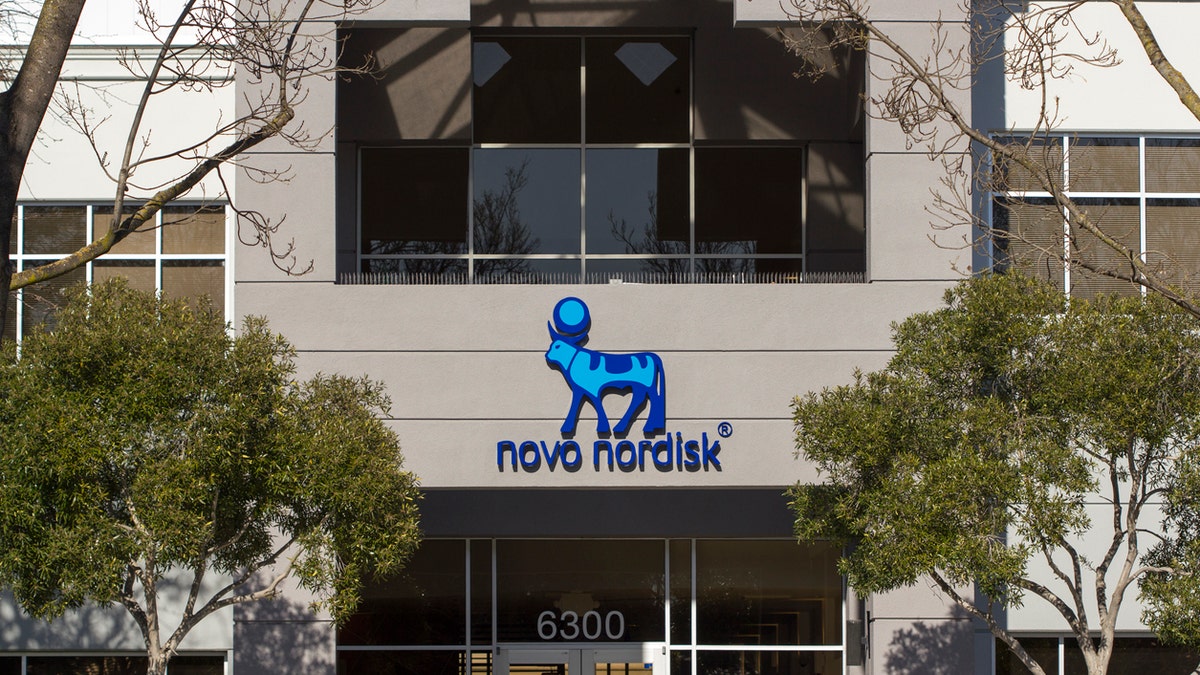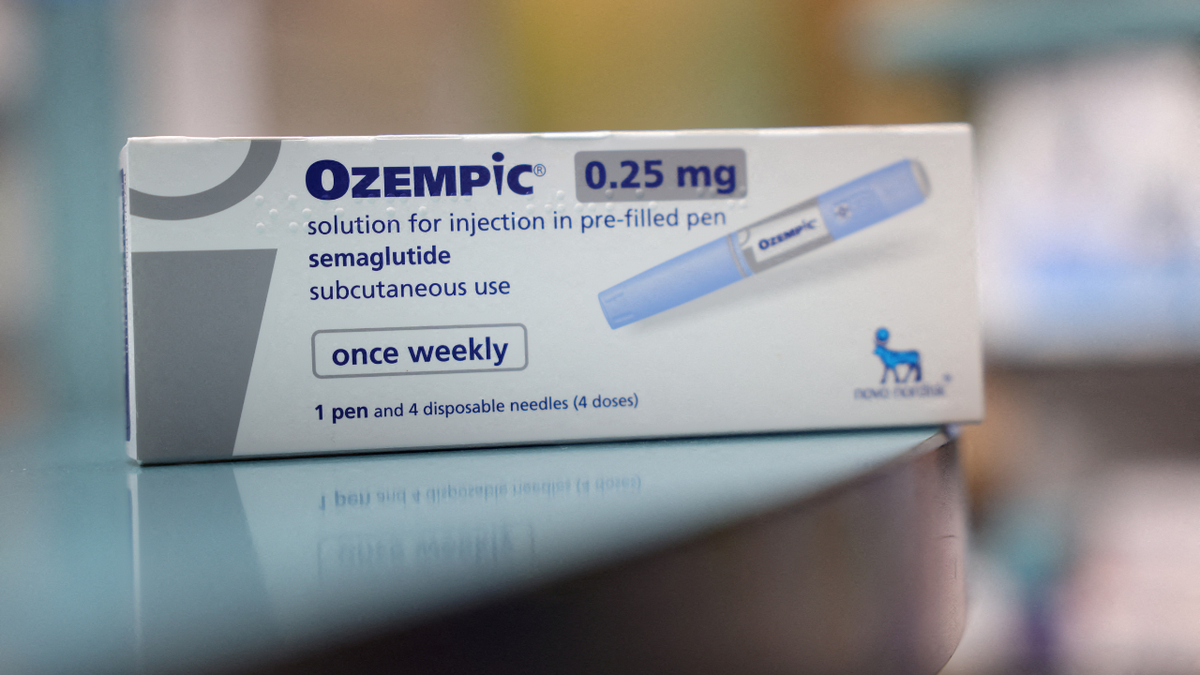‘Dual action’ weight-loss pill helps people drop 13% of body weight in three months in early trials
An experimental weight-loss pill is showing promising results, helping people drop 13% of their body weight in a three-month period.
The results from early clinical trials were presented by Novo Nordisk — the Danish drugmaker behind Ozempic and Wegovy — at the European Association for the Study of Diabetes (EASD) annual meeting in Madrid this week.
The drug, amycretin, works by replicating two hunger hormones — amylin, which regulates appetite and creates a feeling of fullness, and glucagon-like peptide 1 (GLP-1), the same hormone that is used in Ozempic and Wegovy to suppress appetite and boost insulin secretion.
‘SIX-PACK SURGERY’ GAINING POPULARITY AMONG MEN, SAY PLASTIC SURGEONS
“Amycretin is the first treatment to harness the two distinct biological pathways stimulated by amylin and GLP-1 in a single molecule,” Martin Holst Lange, executive vice president and head of development at Novo Nordisk, said in a statement sent to Fox News Digital.

An experimental weight-loss pill is showing promising results, helping people drop 13% of their body weight in a three-month period. (iStock)
“We are proud to present the phase 1 study results at EASD, showing that the mean change in percentage body weight was -13.1% with amycretin after 12 weeks of treatment.”
While Ozempic and Wegovy are administered via injection, amycretin is given as a 50-milligram oral pill.
The clinical trial included participants who were obese or overweight but did not have diabetes. Those who took amycretin for 12 weeks lost more weight than those on a placebo — and higher doses led to more weight loss, according to Novo Nordisk.
OZEMPIC PUSH FOR SENIORS? SOME DOCTORS SAY MORE PEOPLE AGE 65 AND OVER SHOULD BE ON IT
Taking the pill once a day led to around 10% weight loss, and those who doubled the dose lost 13%.
Another benefit the researchers highlighted is that people taking amycretin did not appear to hit a “weight loss plateau,” continuing to shed pounds as long as they took it.

Novo Nordisk — the Danish drugmaker behind Ozempic and Wegovy — presented the findings at the European Association for the Study of Diabetes annual meeting in Madrid this week. (iStock)
“The lack of weight loss plateauing indicates the possibility of achieving further weight reductions with extended treatment,” Agnes Gasoirek, a senior clinical pharmacology specialist at Novo Nordisk, wrote in the study findings.
‘Dual effect’
Dr. Christine Ren-Fielding, director and chief of bariatric surgery at the NYU Langone Weight Management Program, commented on the drug’s effectiveness.
OBESITY MAKES PEOPLE MORE LIKELY TO CATCH COVID, STUDY SUGGESTS: ‘INDISPUTABLE RELATIONSHIP’
“GLP-1-based treatments, like Ozempic, have already shown impressive weight loss results by helping patients feel fuller for longer and reducing appetite,” the doctor, who was not involved in the study, told Fox News Digital.
“Adding amylin, another hormone that plays a crucial role in regulating insulin and hunger signals, amplifies this effect.”

Adding amylin, a hormone that plays a crucial role in regulating insulin and hunger signals, amplifies the effect of GLP-1 drugs like Ozempic, a doctor said. (Reuters)
This “dual action” creates a more powerful tool to manage cravings and caloric intake, according to Ren-Fielding.
“It’s particularly interesting because it addresses weight management through multiple physiological pathways, making it more comprehensive and potentially more effective than conventional treatments that typically focus on a single mechanism,” she added.
Potential risks or side effects
The most commonly reported side effects of amycretin include gastrointestinal issues like nausea and vomiting, more so with higher doses, according to Novo Nordisk.
“These adverse effects are not unusual with GLP-1 receptor agonists, which are known to affect gastric motility,” Ren-Fielding noted.
“It addresses weight management through multiple physiological pathways.”
It’s important to monitor these side effects closely, she advised, as GI issues are common among patients with obesity.
“While the initial weight loss outcomes are indeed encouraging, further studies are needed to ensure that the therapeutic benefits consistently outweigh the potential risks, especially with long-term administration,” Ren-Fielding added.
‘Not a cure-all’
While GLP-1 based drugs — including this new experimental pill — may show promising results, Ren-Fielding emphasized that they’re “not a cure-all for obesity.”
CLICK HERE TO GET THE FOX NEWS APP
“Obesity is a chronic, multifactorial disease that requires a comprehensive, long-term approach,” she told Fox News Digital.
“Pharmacological treatments can play a significant role in managing the condition, but they are often most effective when combined with other interventions.”

“Obesity is a chronic, multifactorial disease that requires a comprehensive, long-term approach,” a doctor told Fox News Digital. (iStock)
Some patients may benefit from surgical interventions, the doctor said, along with lifestyle changes such as regular exercise, healthy eating and psychological support to address underlying behavioral factors.
“It’s important to recognize that obesity is not just about weight loss — it’s a lifelong condition that requires ongoing management, much like any other chronic disease,” she added.
Next steps
The results of the study are considered preliminary, as they have not yet been published in a peer-reviewed medical journal.
The researchers will continue to conduct research on amycretin in the coming months, according to Novo Nordisk.
CLICK HERE TO SIGN UP FOR OUR HEALTH NEWSLETTER
“The safety and tolerability profiles and the magnitude of weight loss support further development of amycretin, and we are awaiting data from the ongoing phase 1 trial with subcutaneous amycretin, with expected read-out in 2025,” Lange said.
“If further research supports these initial findings, I can envision it becoming a viable option for those struggling with obesity.”
Ren-Fielding said there is “certainly potential” for the new drug to get FDA approval, especially considering the effectiveness of GLP-1-based drugs in recent years — but confirmed that much more testing is needed.
“The current clinical trials are promising, but we need larger, long-term studies to really assess the safety and overall benefits of the drug,” she told Fox News Digital.
For more Health articles, visit www.foxnews.com/health
“If further research supports these initial findings, I can envision it becoming a viable option for those struggling with obesity,” she went on.
“While I’m cautiously optimistic, there’s still a road ahead before we see widespread availability.”





